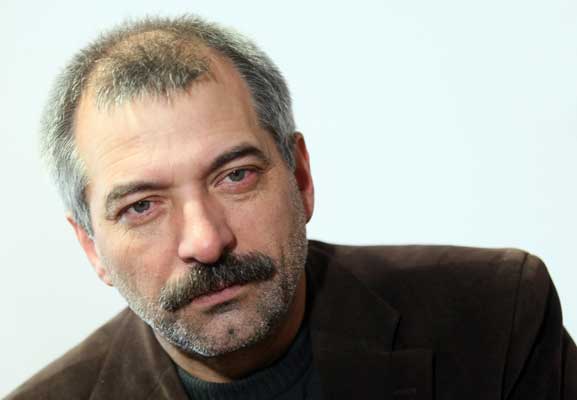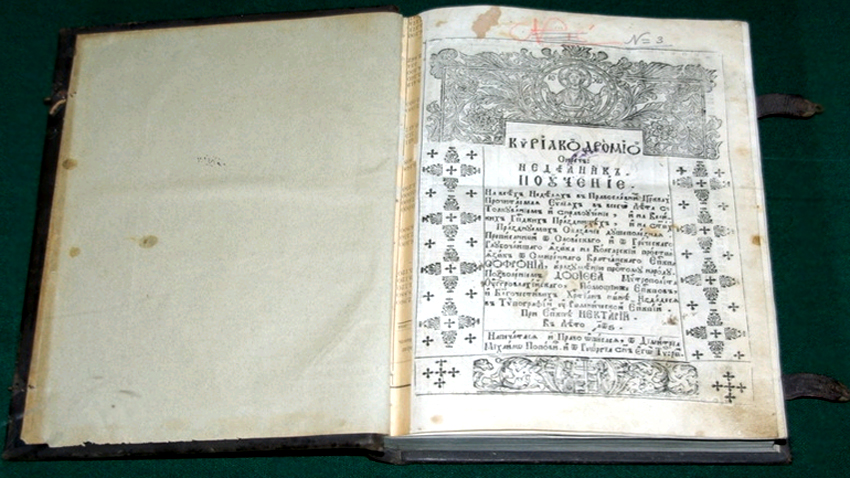„Unfortunately we are trapped by inertia when we discuss the Bulgarian Revival and the personalities that formed that period in history. We easily forget the lessons we had to learn after the Liberation from Ottoman yoke. The National Revival was an era that we seem to know a lot about, but if we are critical enough, we will conclude we in fact know little. We rate Revival leaders like this - No. 1, 2, 3, but we tend not to scrutinize their work and thus fail to evaluate their personal inputs in Bulgarian history”, Prof. Plamen Mitev from the Faculty of History at Sofia University recently said in an interview for Radio Bulgaria.
On the occasion of the Day of National Revival Leaders, November 1, we talked to Prof. Mitev again in a bid to present more adequately one of the most prominent figures of the Bulgarian National Revival, Sophronius of Vratsa (1739-1813).
Bulgarians often associate the beginning of the National Revival in 18 c. with the work of priest Paissius of Hilendar (1722-1773)and his remarkable booklet Slav-Bulgarian History completed in 1762. His follower Sophronius however had a longer life and a greater contribution into the National Revival than his mentor Paissius. The priest wrote the first Revival work of literature in his cell at Zograf Monastery on Mount Athos, but for quite a while Slav-Bulgarian History remained little known in the Bulgarian lands. It rose to popularity in the 1870s thanks to the studies of outstanding historian Marin Drinov.
 In contrast, what Sophronius did, left a bright vestige in the spiritual awakening of Bulgarians, Prof. Plamen Mitev contends.
In contrast, what Sophronius did, left a bright vestige in the spiritual awakening of Bulgarians, Prof. Plamen Mitev contends.
„Apart from completing two handwritten copies of Slav-Bulgarian History, Sophronius also wrote ten manuscripts with the most important among them being his two Vidin miscellanies. With the second Vidin volume he urged his congregation to donate money not to monasteries but rather to wise teachers who would teach children what other European nations had already learned and implemented in their political history“, Prof. Plamen Mitev explains:
„In the period 1803-1808 Sophronius of Vratsa translated a few precious texts.He compiled a book about the three monotheistic denominations - Judaism, Christianity and Islam, which created a religious diversity in the Balkans, the Bulgarian lands included. He also translated Theatron Politikon, a political treatiseby Ambroise Marlianpopularin 18 c. which explores the political patterns of various states. When the Bulgarians began their struggles for liberation from Ottoman yoke, Sophronius of Vratsa tried to prepare the future political elite with the very best of human political experience.”

The celebrated Nedelnik by Sophronius released in 1806 was the first printed book in the modern Bulgarian language. Until the Liberation in 1878 this was the most often reprinted book - with six editions. Says Prof. Plamen Mitev, „There was hardly a Bulgarian church without at least one copy of this book - it was universally used by Bulgarian priests to conduct church service.”
In 1811 Sophronius wrote a letter to Gen. Mikhail Kutuzov, Commander of the Russian Army in the Russo-Turkish war of 1806-1812. In the letter he expounded the demands of Bulgarians structured in a comprehensive program:
„Sophronius suggested creating an autonomous Bulgarian region where Bulgarians would get full control over natural resources and would be able to practice free trade and handicrafts, build factories and organize schools. He argued that the autonomy should be set up in the region close to the mouth of the River Danube, in the historical locality of Ongala where the founder of the Bulgarian state in the Balkans in 681 Khan Asparuh first settled. The idea was that other Bulgarian territories would later join this autonomous region,” Prof. Mitev explains:
„In the early 19 c. Sophronius stood out as a keen enlightener who saw the opportunity to settle the Bulgarian national question in the most favorable way for his compatriots, and tried to work for the materialization of this dream. During that Russo-Turkish war of 1806-1812 he was active trying to organize the Bulgarian emigration with the hope that in its course Bulgarians could achieve their liberation. Unfortunately, this failed to happen. A year after the signature of the Bucharest Peace Treaty in 1812 Sophronius of Vratsa passed away. His legacy however left a bright vestige for Bulgarian patriots. He is admired by all educated Bulgarians because they can appreciate his great contribution into the future of the Bulgarian nation.”
English Daniela Konstantinova
On the eve of St Athanasius' Day, one of the churches on the outskirts of Sofia is already preparing to welcome His Holiness the Metropolitan of Sofia and Bulgarian Patriarch Daniil , who this year will celebrate the Divine Liturgy in the church in the..
Atanasovden, also known as Midwinter in our folk calendar, is a holiday on which the Orthodox Church and our folklore pay tribute to St. Athanasius the Great – Archbishop of Alexandria and a fighter against Arianism (church heresy which rejects the..
The only chapel in the country to bear the names of Saints Anthony and Atha nasius is in Sandanski, and its consecration will be performed by His Eminence Metropolitan Seraphim of Nevrokop, reports Andon Kotev - one of the initiators of the idea to..
On 3 March, Bulgaria celebrates the 147th anniversary of its liberation f rom five centuries of Ottoman rule. The day was declared a national holiday in..
There is a map which helped usher in the birth of modern Bulgaria during the Russo-Turkish War of 1877-1878. The Austro-Hungarian researcher Felix..
Batak is a name every Bulgarian remembers with deference and pain because the fate of the small town in the Rhodopes is scarred by one of the bloodiest..

+359 2 9336 661
